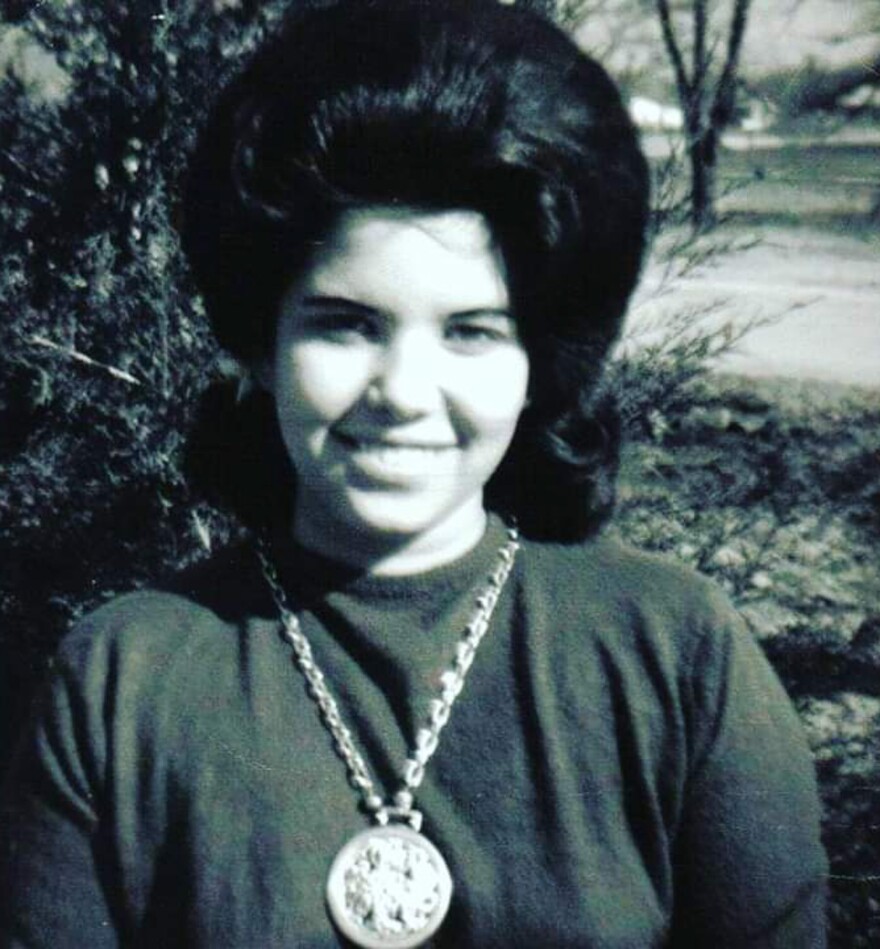Some of Joshua Wise’s favorite childhood memories involve the caves and rock formations around Chandler Park in Tulsa. His grandmother, Bonnie Louise Strickland, used to take him hiking there as a kid, and he recalls the feeling of being young and having the freedom to climb around recklessly.

“Any time that I'm out in nature, it kind of reminds me of being out there with her,” says Wise. “It's just a constant reminder of those good times.”
Wise, 41, is a stay-at-home dad and student at Tulsa Community College pursuing an associate’s degree in digital media. He grew up in Tulsa in a strict religious household and says he often felt alienated, with little freedom for self-expression.
“It was very, very scary as a kid growing up with that … just the sense of this imaginary person always watching you,” Wise says. “I was always in fear.”
Early on, the family attended a Southern Baptist church, but later moved to Free Will, a sect of Baptism, and a Charismatic church, a Christian denomination similar to Pentecostal. He remembers attending services with the threat of end times, and rituals like snake handling and speaking in tongues.
“I was, like, maybe 12 years old, and I didn't really care for church anyway, so I was preoccupied with drawing a picture or something, and the minister snatched my sketch pad out of my hand, threw it on the ground, and told me that I needed to pay attention to him because his was the voice of God,” Wise explains. “And it really upset me because my dad was sitting right there and didn't say anything. Just let it happen.”
In contrast, Wise’s grandmother provided him with acceptance and freedom for self-expression.
“My relationship with my grandmother was very close, to the point where I consider her more of a mother than my own,” Wise says. “She just nurtured me in a way that … I didn't feel ashamed to be unique, or kind of go against the grain, especially with my religious family.”
For him, spending time with his grandmother was an escape. Strickland was part Cherokee and made sure to nurture Wise’s Indigenous identity, educating him about his heritage.

“[She] definitely helped me form my own kind of view … especially with the organized religion,” Wise reflects. “It definitely had a big influence on me researching my ancestry and kind of understanding the practices and culture.”
Strickland took him to Indigenous pow-wows and events like the Green Onion Festival, a large community dinner hosted by tribes throughout Oklahoma. He even started his own research into the Delaware tribe, also known as the Lenape, who originated in what is now Philadelphia and New Jersey, that was absorbed into the Cherokee tribe.
Connecting with this Indigenous culture gave him a sense of community that he felt he never had growing up.
“Having that kind of sense of knowing I come from a bigger picture and have a bigger family than just what was at home made me feel a little bit more safe.”
And for Wise, that’s exactly what home means.
“The idea of home to me, especially after having kids, is pretty much the same as when I was a kid,” he explains. “I never really felt that safety, and so I'm very focused on how my kids are feeling. I'm always asking them how they're doing. I'm sure it's annoying, but I just want them to have that sense of … regardless of the situation, they can depend on me to be there or have that environment at home that there's no judgment.”
He recalls a story of when he visited his grandmother in the hospital before she passed away. He walked into the hospital room with a bright red mohawk, and her eyes lit up and she smiled.
“Don’t ever change,” she said. “I love the way that you are now.”
It’s his close relationship with his grandmother that influenced how he raises his kids.
“I take my kids hiking all the time. I love the outdoors, and I try and share that kind of culture with them because a lot of that Indigenous heritage is the land that you live on. You’re self-sustaining. And so I try and give them that kind of quality of life. It's a little tricky because they are in a society that everything is kind of new and flashy. So it's hard to pull them away from it and go camping, this day and age, but I do what I can. It's challenging, but it's also rewarding when you get to see them enjoy the outdoors like I did.”







